Diverse Crew News
Insightful, thoughtful, creative read anyone? We feature articles written by diverse writers, performers and crew from the TV, Film and Theatre industries, allowing the honest opinions of those at root-level to be heard.

REDTV
The Author: Sometimes we come accross something special, it should be shared. This is a Diverse Crew Find... Enjoy.
Introducing REDTV, a fast paced lifestyle channel that puts Africa's best entertainment, fashion, news, design, music, sport, movies and travel at your finger tips!
We're kinda, last-to-the-party on this one:
With 1,741,996 people following them on Facebook and over 50,000,000 YouTube views, let alone other social media platforms, REDTV entertains people in over 30 countries outside the continent Africa.
Proudly associated with the United Bank for Africa and powered by UBA Group, REDTV has aired shows like The Men's Club, Africa's Next Top Model, Assistant Madams, Inspector K, Our Best Friend's Wedding, and Unintentional (2021 film).
More than just a channel:
One of the main objectives of the network is to develop new talent and help provide avenues for young entrepreneurs in the business of film, to grow.
As such, REDTV, United Bank for Africa’s Lifestyle and Entertainment channel, continues to lend its support to the creative industry and empower young film producers in Africa.
So... this decidedly African, Netflix-like, new kid on the block is actually an established international rising star.
Start by watching The Men's Club created by Urban Vision. The series directed by Tola Odunsi currently has 3 seasons with some holiday special editions.


Our Union pt.1
The Author: Davon Williams - AEA and SAG-AFTRA member since 2013, Eastern Principal Delegate serving on the EEO Committee, Artist Ambassador for the NYCLU and Director of Communications for Black Theatre Coalition, which aids in the work of increasing employment opportunities for Black theatre professionals
I think it's clear after today that I'm not giving you a campaign, I'm serving you a mission statement.
***This is a warning. What I am about to share could be unsettling and upsetting.***
My name is Davon Williams and I very much need your help. As you may know, there is currently an election happening. From now until May 26th, you will be campaigned at by members working to get your vote with different motives for wanting to serve in governance. I am also running, however, that is not the purpose of this email. This run for 1st Vice President has offered me an opportunity that isn’t normally afforded by the union; a chance to directly speak to you. AEA election policy states that “Equity will make available to all candidates the opportunity to send campaign communications by e-mail to all members who have provided an email address to the union.” With this moment of direct access, I present to you a series of receipts in hope that it compels you to activate. The pandemic exposed a bevy of flaws in our union's infrastructure. It has also provided an opportunity for a deep reset. Many of us want a union focused on enforcing the protections and opportunities outlined in its constitution. Voting is the way to bring about that change. In the last Councilor election, only 11,211 eligible union members out of 46,848 voted. That is under 24% of voters deciding the direction of an entire union. This was a better turnout than elections past which had an average turnout of 17%. In this current election, the number of eligible voters has significantly dropped to 36,337. If our voting pattern holds true, then anywhere between 6177 to 8,720 members could decide the collective fate of over 55,000 members. This is not okay.
I need you to share the stories you are about to read. I need you to share this email with your fellow members who are not receiving them. I need you to talk about the injustices happening inside of our union. I need you to demand answers. I need you to vote. Frankly, I need us all to give a damn.
THE AEA INAUGURAL CONVENTION: Did you know that our first-ever AEA National Convention ended in a walkout due to racism and implicit bias?
A year ago, AEA held its first National Convention from April 25th, 2021 to April 28th, 2021. Resolutions created by over 200 Delegates were brought forth including the Black Theatre Matters Bill. This series of over 100 resolutions created by over 500 pro-union activists served as a strategic plan to make the union more inclusive, equitable and structurally sound. This legislation that was brought forth and passed is the only policy to receive national recognition and attain an award for its equity, diversity and inclusion initiatives. This bill won higher praise than the American Theatre Wing’s own EDI initiatives which were also nominated. However, this major accomplishment in leadership for our union is marred by the unconscionable harm caused in that same convention space.
For all three days of the Inaugural Actors’ Equity Association’s National Convention, our historically disenfranchised members were exposed to microaggressions, slander, verbal assaults, suppression, and degradation. During the presentation of the Black Theatre Matters Bill, a white woman serving as an Eastern Principal Delegate used her time on the convention floor, not to discuss the validity of the legislation being presented, but to personally attack my being in front of over 200 of our governing peers. Her attempt to brand me as dangerous and violent followed an all too familiar pattern seen throughout American history when it comes to race. This presentation by this Eastern Principal Delegate featured the weaponization of tears followed by viewable laughter after an attempt to brand a Black man as threatening to her being.
This attack, by an Eastern Principal Delegate, was so alarming that it compelled a Black woman to bravely and passionately speak up. It took her over an hour to get the chair’s attention after direct-messaging her concerns to every person in a position of power. When she finally made it to the convention floor to speak on the harm caused, her mic was abruptly cut off and her concerns were not addressed.
On the third day, after several more historically disenfranchised members serving as delegates fell victim to implicit and explicit bias, racial tension had hit a boiling point and a plea to the acting chair of the convention was made for her to act. Refusing to take direct action, a vote was made to continue or stop the convention. When the vote was brought forward on the Convention floor, members feeling a barrage of conflicting thoughts and feelings, voted to continue with the Convention. This decision sparked a walkout led by Black members of governance.
In a letter sent four weeks after the Convention to former Executive Director Mary McColl and current President Kate Shindle, delegates give insight into some of the harm caused by a Councilor right before the walkout stating “…casual disregard for Davon Williams’ pain (after being pulled out of the general proceedings and into a disciplinary room for being “loud” and “violent”), for the BIPOC delegates’ pain at large; and for the courageous walkouts of some of our Black councilors (and other BIPOC and white folx) was nothing less than devastating when she pushed back against ending the business meeting. While it is clear that she was not the only one to vote to continue with resolutions, the fact that she couldn’t understand (which she inappropriately expressed in her outburst) why we needed to stop and address the lack of safety in the “space” was a slap in the face. Moreover, her questioning, in an agitated state, the validity of her vote when People of Color are actively being suppressed in our larger democratic process, is incredibly tone-deaf. The fact that she turned this moment of Black pain into a moment about her and her individual place in Convention was egregious, and a perfect example of centering whiteness.”.
The names of the victims involved in this Convention are public, while the identities of these abusers are still being protected by the union. How can this union position itself as a leader of an anti-racist industry when we won’t address the deep roots of institutional racism and implicit bias in the foundation of our association? This issue has yet to be rectified, however, the union has pushed forward with preparing for the second Convention.
To this day, Equity has not issued a public apology, acknowledged physiological harm, nor given any direct path to atonement to the historically disenfranchised group of members serving as delegates who were led into the three-day concert of abuse.


Our Union pt.2
The Author: Davon Williams - AEA and SAG-AFTRA member since 2013, Eastern Principal Delegate serving on the EEO Committee, Artist Ambassador for the NYCLU and Director of Communications for Black Theatre Coalition, which aids in the work of increasing employment opportunities for Black theatre professionals
THE BLACK THEATRE MATTERS BILL:
Triumphantly, the Black Theatre Matters Bill is the only award-winning legislation to come out of the AEA National Convention. This bill of over 100 resolutions was created with the input of over 500 pro-union dreamers. Made up of 12 Articles, this legislation was designed to create a strategic path forward for a more equitable and sustainable union. Highlights include:
- A recommitment to the organizing of Spanish Speaking TheatreThis organizing effort was originally sought after by member Carlos Gobera in 1986 and was resolved (approved) by Council, however, the organizing effort was abandoned.
- The organizing of Drag PerformersBuilding protections and supplying healthcare to drag performers on the live theatre touring circuit is vital.
- The organizing of Theatre Teaching ArtistsMany of us have served as teaching artists for theatres. A large number of theatre budgets are sustained by their educational efforts. It is only right that we receive health weeks for this labor.
- The organizing of Cruise PerformersIf full-length Broadway productions have made it to International waters, then so should the protections that helped sustain the performers who made that show the success it is today.
- The creation of the History Preservation and Restoration CommitteeOur AEA history has been whitewashed and many of the contributions by individuals of color or organizations like the Negro Actors’ Guild (who gave us our first Black President of AEA) have been erased, misrepresented, or forgotten. We have the opportunity to offset rising dues and begin using our union history to attain grants and build new options for fiscal sustainability.


Our Union pt.3
The Author: Davon Williams - AEA and SAG-AFTRA member since 2013, Eastern Principal Delegate serving on the EEO Committee, Artist Ambassador for the NYCLU and Director of Communications for Black Theatre Coalition, which aids in the work of increasing employment opportunities for Black theatre professionals
“SUGAR, BUTTER, SET AGREEMENT”:
Did you know that the cast of a national tour demanded that AEA look into their show’s finances after suspicion that they might be owed greater wages due to recoupment of the show's debts? The Union did not act and Councilors reduced members vocal about this issue to Q Anon Conspirators.
The organizing efforts of the non-union WAITRESS National Tour led by Director of Organizing and Mobilization Stefanie Frey is a major moment for our Union. We must continue to support such innovative efforts. However, bringing in new members is pointless if we are not enforcing the agreements set in our collective bargaining agreements.
Since 2019, the cast of the CATS National Tour begged for help regarding financial transparency around recoupment. It wasn’t until their story was made public, that the cast was even offered some form of compensation. This issue is still ongoing and this cast has yet to be helped. The cast has pleaded for a forensic audit. After being promised a forensic audit by outgoing Executive Director, Mary McColl, it was recently revealed that no such audit was ever initiated. Even after a public investigation by members, attainment of financial documents from the tour, the revelation that the show wasn’t bonded, and the current admission of accounting errors which now prove that the show recouped, our union leadership still has not seen it fit to follow through with a forensic audit.
- A town hall was held on January 27th, 2014 to discuss concerns over the SET Agreement.
- Our staff was made aware of the concerns of the CATS National Tour Cast on September 28th, 2019.
- Our union President was made aware of the concerns of the CATS National Tour Cast in March 2020 at the latest.
- Our current 1st Vice President was made aware of the concerns of the CATS National Tour Cast on December 23rd, 2020
- Our entire Council was presented with documentation on April 1st, 2021
Here’s the revelation, if you have ever worked a SET Agreement contract, then you need to be paying attention. If the CATS National Tour Cast is awarded a forensic audit and foul play is confirmed, then this puts every production under the SET Agreement into question. This is bigger than CATS and has nothing to do with villainizing our employers. This fight is about our union enforcing the rules and demanding that they protect our pockets. This is about years of potentially lost wages dating back to over a decade due to a lack of fiscal oversight. What’s worse is that we must ask if the fiduciary responsibility of our leaders was compromised in the name of self-preservation when leaders who were aware of these issues failed to act. Being a fiduciary thus requires being bound both legally and ethically to act in the other's best interests. A fiduciary is a person or organization that acts on behalf of another person or persons, putting their clients' interests ahead of their own, with a duty to preserve good faith and trust. What happened here?


Our Union pt.4
The Author: Davon Williams - AEA and SAG-AFTRA member since 2013, Eastern Principal Delegate serving on the EEO Committee, Artist Ambassador for the NYCLU and Director of Communications for Black Theatre Coalition, which aids in the work of increasing employment opportunities for Black theatre professionals
A HISTORY OF NEGLECT AND POTENTIAL EXPLOITATION:
On June 1st, 2022, AEA attorney Melissa Woods representing Cohen Weiss and Simon LLP, will sit down with a union member in a pre-hearing settlement conference. Why? Because in 2018, this cast member requested help from our union regarding major altercations with unfair treatment, bullying, and racial discrimination while working on a Broadway show. This member never received support from our union even as the altercation hit critical mass in the public eye. This actor has spent the past several years researching union law, studying past legal cases, and collaborating with the NY Division of Human Rights. What he hasn’t been able to do, is heal from years of being ostracized. What is most disheartening is that this story is one of many. Even I am writing to you as a victim of ongoing neglect from this union. In 2019, when I was supplied a faulty bike from a theatre which led to a horrific collision with a Mack truck, I did not receive adequate support from our union. If it had not been for our union’s ongoing neglect, I don’t think I would even be this heavily involved in union governance. Stories of neglect run rampant and are easily searchable.
AEA VS THE WORLD:
During the pandemic, a very public fight took place between SAG-AFTRA over jurisdictional rights. Brent Theissen, who is currently running for a position on council, wrote an article entitled “Is My Union Obsolete: A Story of Power, Politics, and Greed”.
In another altercation, theatres across the country had trouble producing due to inconsistencies in union COVID protocols. Amid the Pandemic, Barter Theatre was insistent on keeping its doors open in whatever capacity Equity would provide. In April 2020, AEA sent out a message to membership stating, "It is important that employers prove they have the appropriate protocols in place before we restart work. Because of that and consistent with your collective bargaining agreements, we are not issuing contracts until they can prove they have those protocols in place and we believe their protocols will keep you safe at work.” Equity followed up with its 4 core principle memo which contained contradictory language and no real effective plan to move forward. Yet, Barter developed a plan that met all possible principles outlined in the memo, which included consulting with medical professionals and utilizing outdoor theatre spaces. For clarity and guidance, union member, Kim Morgan Dean, reached out to then AEA Eastern Regional Vice President who “deflected answering until the upcoming council meeting in the coming days.” (Disclaimer: After many strings of communication with Equity and two reopening proposal submissions, Equity still did not provide approval for reopening. This continued up until April 8th, 2021.
MEMBERS NOT IN GOOD STANDING ARE ERASED FROM HISTORY:
Upon passage of Article X found in the Black Theatre Matters Bill, it was discovered that members who miss five consecutive dues cycles are removed from the union’s records. What’s alarming, is that many of our historically disenfranchised members tend to fall behind on dues because of a lack of sustainable work for their community or simply due to old age. This insinuates that members who have paid into this union for decades have been erased due to a flaw in our policy regarding the definition of “good standing.” This is not okay. This issue removes the contributions of so many members whom we will never know. Only “celebrity” members not in good standing will receive an acknowledgment by the union which reduces all of our legacies to social currency. However, issues like this can be solved through a resolution created by the council. The issue is a lack of action. With each passing moment, we lose more and more of our history. With every moment we allow this to go unaddressed, we erase another legacy. This means in death members affected by this rule will not be acknowledged.


Our Union pt.5
The Author: Davon Williams - AEA and SAG-AFTRA member since 2013, Eastern Principal Delegate serving on the EEO Committee, Artist Ambassador for the NYCLU and Director of Communications for Black Theatre Coalition, which aids in the work of increasing employment opportunities for Black theatre professionals
THE MOST IMPORTANT RACE IN THIS ELECTION:
I fully agree that running unopposed is not democratic, and the low turnout is further proof that faith in our union governance is depleting at a concerning rate. A union with over 55,000 members struggling to fill seats is a true “State of the Union.”
It is my argument that the most important race in this election cycle is not the race for 1st Vice President, but rather, the race for AEA Treasurer. We need to focus on both candidates and truly take the financial stability of our union seriously.
Here’s why this race is the most important in the words of current AEA Treasurer Sandra Karas: “We emerge from the pandemic on strong financial footing, but we have much work ahead – negotiating safe and solid contracts and ensuring that member dues are spent properly. I’m especially proud of my work on the Performing Artist Tax Parity Act (PATPA). I wrote it, fought for it and want to see it across the finish line – FOR ALL OF US! This will allow Actors and Stage Managers throughout the country to deduct their business expenses once again! It will put hundreds, even thousands of dollars back into members’ pockets.”
Sandra has written the PATPA bill that is currently making its rounds throughout our U.S. Congress. Sandra holds the knowledge to actually fight for this bill if members of congress fight against it. She has read the entire trump tax bill and knows all the numbers and how this revision would work. Highlights of this bill include:
- To amend the Internal Revenue Code of 1986 to increase the adjusted gross income limitation for above-the-line deduction of expenses of performing artist employees, and for other purposes.
- by adding at the end the following new clauses“(ii) PHASEOUT.—The amount of expenses taken into account under clause (i) shall be reduced (but not below zero) by 10 percentage points for each $2,000 ($4,000 in the case of a joint return), or fraction thereof, by which the taxpayer’s adjusted gross income (determined without regard to this subparagraph) for the taxable year exceeds $100,000 (200 percent of such amount in the case of a joint return).
- by adding at the end the following new clauses (iii) COST-OF-LIVING ADJUSTMENT.—In the case of any taxable year beginning in a calendar year after 2021, the $100,000 amount under clause (ii) shall be increased by an amount equal to: (I) such dollar amount, multiplied b, (II) the cost-of-living adjustment determined under section 1(f)(3) for the calendar year in which the taxable year begins, determined by substituting ‘calendar year 2020’ for ‘calendar year 2016’ in subparagraph (A)(ii) thereof.
- If any amount after adjustment under the preceding sentence is not a multiple of $1,000, such amount shall be rounded to the nearest multiple of $1,000.
(b) Clarification Regarding Commission Paid To Performing Artist’s Manager Or Agent.—Section 62(a)(2)(B)(i) of such Code, as amended by subsection (a), is amended by inserting before the period at the end the following: “, including any commission paid to the performing artist’s manager or agent”.
VOTE AND TELL YOUR UNION FRIENDS TO VOTE AS WELL:
We need to take the decisions that affect our pockets seriously. It is great to have a spirited race, but actions have consequences. Please take this election seriously. It is not enough to be the “1st.” Passion is not enough either. Talk is cheap. We need focused action. We need proven experience, vision, dedication to truth, and full comprehension of the job at hand. You, as members, need to be about that action. Ignore the noise of aggressive campaigning and be about the substance. Look at all of these candidates' statements and research us.
Lastly, the 1966 Freedom of Information Act, generally provides any person with the statutory right to obtain access to government information. Following this model, I will allow access to all non-confidential information I possess regarding Actors’ Equity.
VOTE: Davon Williams

The Rules!
The Author: Anthony Osarfo is a multiple award-winning screenwriter and an art/entertainment journalist.
After fifteen years of writing (journalism and screenwriting combined), I'm embarking on a journey discussing the oh-so-monstrous "problem" of on the nose dialogue (OTN) as per many experts and pros in writing who offer professional advice or services.
First, does writing a screenplay with absolutely no on-the-nose dialogue make a story great? Furthermore, does it make one a great storyteller or writer? Well, it can be argued that screenplays should feature 1 or 2 characters with on-the-nose elements to their dialogue. You may follow my reasoning below:
a) Believable Characters - Some people speak bluntly, inject them with tons of subtext-vaccines and they'll still speak in an on-the-nose fashion. This is important as effective, believable and communicative art is largely a reflection of reality. Dependant on cultural origins and/or lifestyle, on-the-nose dialogue can be the expected form of communication. When writing such characters, use of on-the-nose dialogue could be said to be the only way to honestly represent them. To this end, is there in fact a requirement for us, as storytellers, to include on-the-nose dialogue in our screenplays?
b) Creation Of Conflict/Tension - On-the-nose dialogue can be used as a device to create tension or conflict within a story. A character telling another character, "your breath stinks, back off!", is a recipe for conflict or tension. It grabs attention, good or bad, and emotions are aroused.
Second, reactions to on-the-nose dialogue in the 'real world' are well... meh. Most of us, until we became screenwriters, watched movies and admired/enjoyed the dialogue... on-the-nose or not, could we have cared less?
Being a screenwriter, I pick up on on-the-nose dialogue while watching movies regularly. It goes against our rules! My wife and kids however, they just want me to be quiet while they continue to enjoy the movie. Clearly, the average cinephiles are not ignoramus, but they don't care about our rules.
I'm yet to chance on any data, vox populi, or poll that gives evidence regarding movie-goers disliking on-the-nose dialogue. I'm also yet to read about a movie that made losses at box office due to on-the-nose dialogue. For some reason, however, we have chosen to propound an invisible web of "rules" and entangled ourselves with them.
Can we begin offloading some of these rules? Are we being too petty with regard adherence to them? After all, nothing is set in stone, and I hazard to say, if films were made for writers, I doubt many films would break even - due to our "rules" preventing us from fully exploring and enjoying art.
As creatives, is it our duty to remain outside-of-the-box? The initial motivation for any creative is freedom of expression, the beauty of artistic license. Let's not allow industrial-fears here and there to stymie our creativity. Let's be dynamic!
What about writing a screenplay where all dialogue is on-the-nose? Let's challenge the conventions, breathing new life into our art while bravely testing it's boundaries. It can be done, the product could be one of the most unique, intriguing comedy or drama movies ever produced in the history of cinema, potentially.
Remember, the big names we always reference or use as case studies were once like you and I (nobodies). They manifested and defended their creative works. You and I can also become schools of thought and authorities just like them. It all starts with having a strong disposition, consideration of the 'other side' of previously established theories for improvement, and the strength to ignore the previously established but currently irrelevant. Writing is not for the faint hearted.
Diversity In The News
We collate and provide links to interesting articles about diversity in the TV, Film, Movie and Theatre sectors. Hopefully we can help shed light on a few issues, while pointing you to a good read.

REDTV
The best entertainment, fashion, news, music, sport, movies and travel.
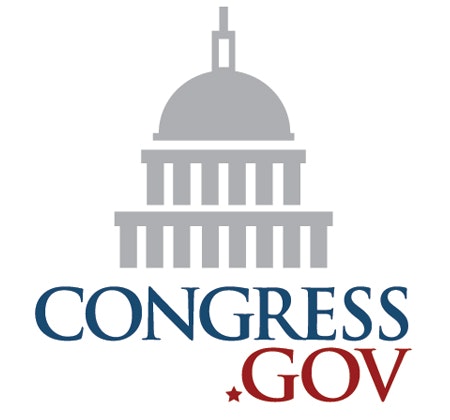
The PATPA bill
The PATPA bill, currently making its rounds throughout Congress.
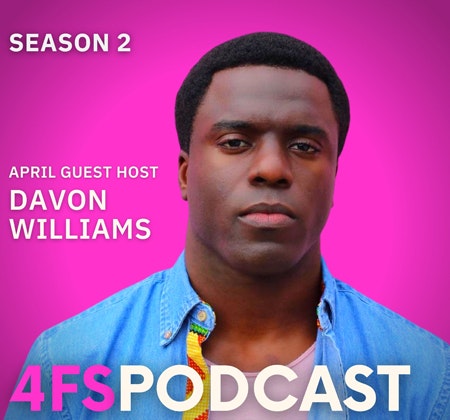
#UsToo
Theatres had trouble producing due to inconsistencies in Union.

Union Memo
Four Core Principles Needed to Support Safe and Healthy Theatre Productions.
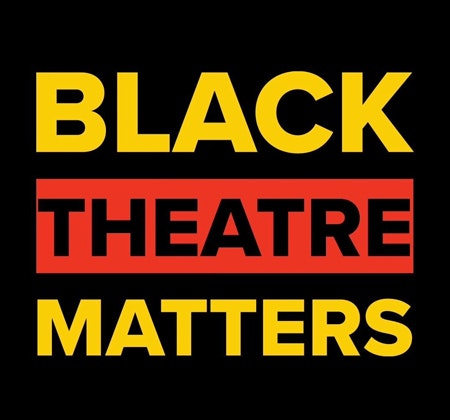
BTM!
The Black Theatre Matters Bill: For the Actors' Equity Association, April 2021.
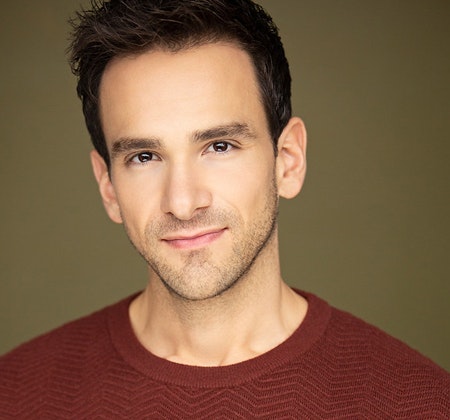
Brent Thiessen
Is My Union Obsolete?
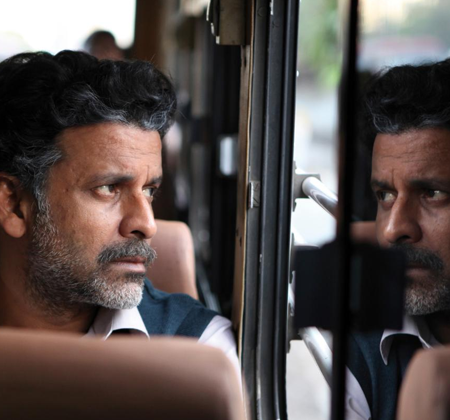
Indian Film
India's best independent filmmakers who have emerged this century!

Nour Wazzi
Director Nour Wazzi on the power of sci-fi, complex Arab characters, and more.

RJ Mitte
RJ Mitte of 'Breaking Bad' is Busting Stereotypes About Cerebral Palsy.
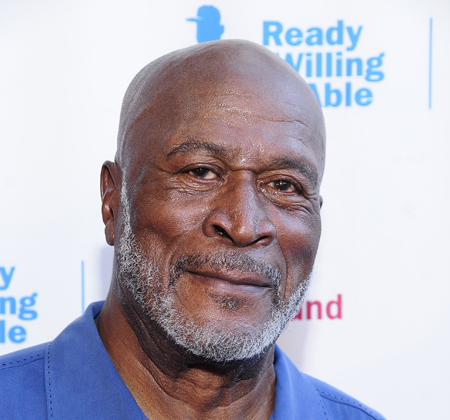
John Amos
49 John Amos Movies, Ranked Best to Worst.

Coda's Win
Will Coda’s Oscars triumph open the doors for disabled film-makers?
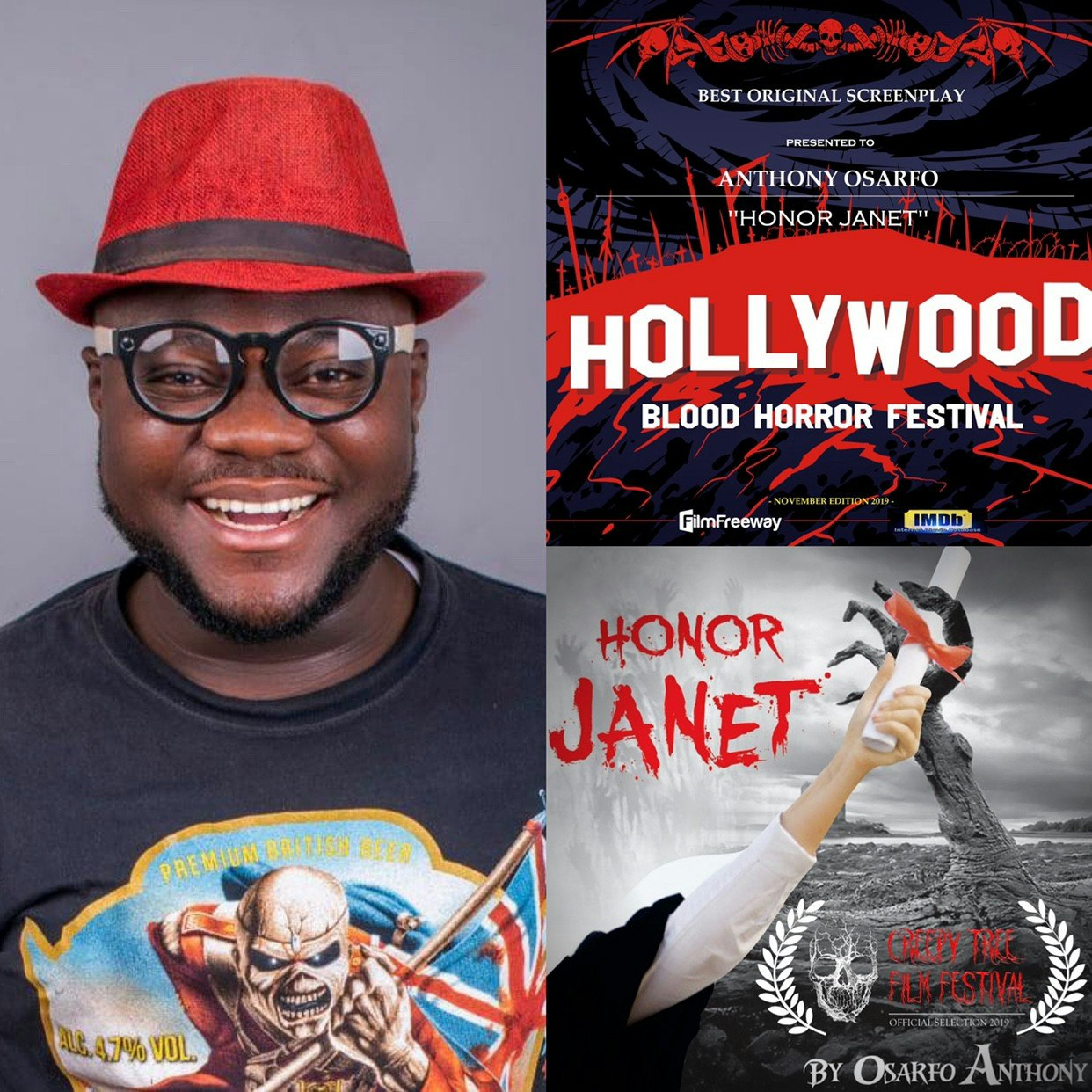
Anthony Osarfo
Anthony Osarfo bags three Hollywood scriptwriting contest awards!

The Will Smith Slap
How coded language is being used to discuss the Oscar-night incident.

Samantha Renke
Disabled characters need to be played by disabled actors, discuss...

Oscars 2022
5 Black Films and Stars That Deserved An Academy Award Nomination.

Elliot Page
See Elliot Page’s “Umbrella Academy” transition for the third season

Arthur Hughes
Arthur Hughes Will Be RSC's First Disabled Actor to Play Richard III

Elle Rose
Indie Filmmaker Jessica B. Smith Gets Greenlight from Amazon Prime!









